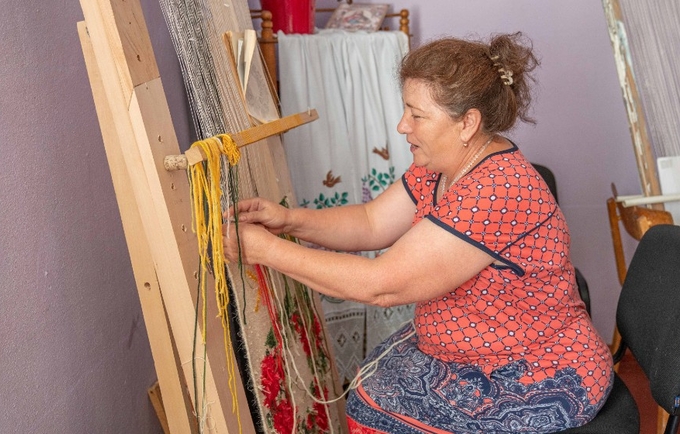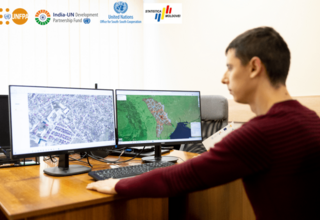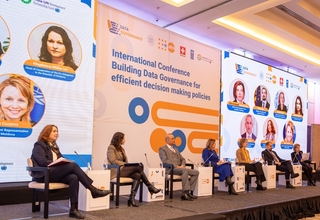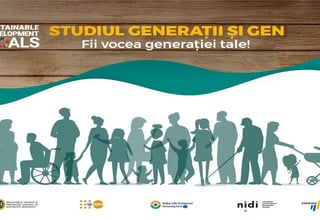By Giulia Vallese
Just a few decades ago, older people were a minority, but due to rising life expectancy and low fertility rates, the share of this group has increased significantly in total population. Today, one in five Europeans is aged 65 and over. By 2050, this share will account for almost 30%.
The rapid ageing of the population in Europe is a fundamental demographic change affecting almost all spheres of the society. This raises questions that many people are concerned about. How will social systems survive when an increasingly smaller share of people of working age will have to support an increasingly larger share of older people? Is the infrastructure adapted to meet the needs of a rapidly ageing society? What does the growing number of older voters mean for the future of democracy and policy decisions on climate change and other pressing challenges affecting the future of generations?
The ageing of societies is still widely seen from a negative perspective: a threat to public welfare and a burden for the young people. However, as Stuart Gietel-Basten, a leading demographer, has recently told a group of UN leaders, that there is nothing inherently negative about population ageing. Ageing only becomes a problem when institutions do not prepare and adjust.
Indeed, the fact that people are living longer and are generally healthier is a reason for joy. This is the result of medical progress, of better living and working conditions, of increased prosperity and improved public health.
Moreover, mostly thanks to these progresses, being an older person at present is not what it used to be. Taking into account that the average life expectancy is reaching or even exceeding the threshold of 80 years, being an older person can mean many years of good life ahead. Whereas older people are more likely to be in good health and well educated, being an older person can mean many years of continued active involvement at the workplace, in the family, community and public life.
The age group that is traditionally defined as ‘older' has never been more diverse. This has prompted a reconsideration of how we define and measure the ‘old age’. It is clear that in this new, more diverse, more dynamic- world of older people, there is no place for rigid age categories and retirement age thresholds, no place for stereotypes and ageism.
The population ageing is inevitable, at least for the near future, and governments in Europe generally recognise the importance of initiating the necessary reforms to create age-inclusive societies. As governments meet this week in Rome to review progress on the implementation of the Madrid International Plan of Action on Ageing 20 years ago, it is important to recognise that despite the various progresses, much remains to be done to achieve the goal of creating societies for all ages.
The COVID-19 pandemic has highlighted the inequalities that older generations still face. Many older people suffer from neglect, poverty, social exclusion and isolation – according to a recent UN Population Fund (UNFPA) survey carried out in Eastern Europe, eight out of ten older people, or 79%, say they are moderately or extremely lonely. Perhaps even worse is the way public discourse tells them, more or less subtly and through myriads of cultural clues, that because of their age they are a burden, less valuable, even expendable. A recent UN report found that rampant ageing is preventing millions of older people in Europe from taking advantage of opportunities to fulfil their potential. The war in Ukraine has shown how older people, mostly women, are particularly affected by humanitarian crises.
The exclusion of older people is not only a human tragedy, it is a human rights crisis and a moral failure. This also affects countries – economically and socially. Given that Europe is rapidly ageing region, countries simply cannot afford to push to the margins a quarter of the population with all their skills, talents and other contributions.
Ensuring that older people can stay healthy, active and engaged is of paramount importance if countries are to strengthen their resilience to wider demographic change.
The UNFPA team supports countries in managing the demographic changes they face and helps implement policies and programs that enable societies to reap the benefits of an ageing population.
There are huge potential gains when people have access to lifelong education and healthcare and reach old age with useful skills and good health. When older people are not excluded when they reach the retirement age, but remain active participants in the economy and society. When older people become the driving force behind an ever-growing 'silver economy' developing around their needs and choices.
Based on our experience, three steps are essential for governments to achieve this:
- Hear the voices of older people. As we are responding to COVID-19 crisis, and developing policies for the future, we must listen to what older people have to say. Engaging with community representatives is vital for avoiding bias and being able to come up with solutions that respond to actual needs.
- Counter ageism in public discourse and practice. There must be no tolerance for the rampant age discrimination and negative stereotyping that has surfaced even more during the pandemic. Promoting a counter-narrative centered on intergenerational solidarity and the agency and valuable contributions of older people will be key for shifting social norms and attitudes.
- Revisit legal and policy frameworks and budgets through an age lens. Now is the time to start looking what needs to change in sectors like health, education, employment and social welfare so that countries are in a better position to cope with the effects of rapid demographic changes while ensuring the rights and choices of an ageing population during their entire life.
Older people are important pillars of our society. They are leaders and creators, teachers and mentors, carers and volunteers, storytellers and promoters of culture, fighters for human rights that we sometimes take for granted. Cultivating these contributions and ensuring that the rights and dignity of older people are always respected is not just a moral imperative. It also helps countries to adapt for the future, build resilience and thrive in a world of rapid demographic changes.
Giulia Vallese is Interim Director UNFPA Regional Office for Eastern Europe and Central Asia.




